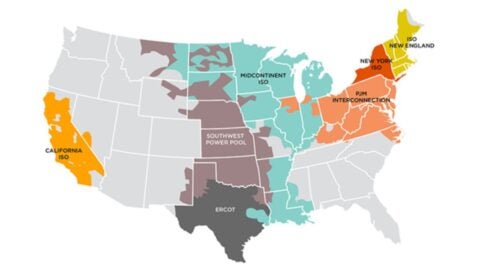White House Fax Flippant on Grim Impacts of Global Warming
 Tomorrow, the U.S. Senate Environment and Public Works Committee will hold an important hearing on the regulation of greenhouse gas emissions under the Clean Air Act. On April 2, 2007, the U.S. Supreme Court affirmed the power of the U.S. Environmental Protection Agency (EPA) to address global warming under existing law. Unfortunately, EPA’s progress has been stymied by stiff winds blowing from the White House.
Tomorrow, the U.S. Senate Environment and Public Works Committee will hold an important hearing on the regulation of greenhouse gas emissions under the Clean Air Act. On April 2, 2007, the U.S. Supreme Court affirmed the power of the U.S. Environmental Protection Agency (EPA) to address global warming under existing law. Unfortunately, EPA’s progress has been stymied by stiff winds blowing from the White House.
Environmental Defense Fund has uncovered a document that provides a disturbing look at the White House’s views on global warming science, views that were revealed as part of White House efforts to interfere with progress at EPA. On June 20, the White House Office of Management and Budget transmitted a fax to EPA with numerous comments on a critically important EPA technical document examining how global warming endangers human health and the environment.
The summary below highlights a few remarkable examples from the White House fax [PDF].
Example 1 – On Abrupt Changes (page 58, comment A29).
EPA scientists: "Abrupt climate changes are an important consideration because, if triggered, they could occur so quickly and unexpectedly that human or natural systems would have difficulty adapting to them (NRC, 2002)." See p. 58.
White House comment A29: "If referring to changes that take decades, one would think that human systems could adapt. Not sure what this is referring to."
Example 2 – On Hurricane Intensity (page 67, comment A39).
EPA scientists: "The IPCC (2007d) also projects likely increases in intense tropical cyclone activity as described in Section 6(b). Increases in tropical cyclone intensity are linked to increases in the risk of deaths, injuries, water and foodborne diseases as well as post-traumatic stress disorders (IPCC, 2007b)."
White House comment A39: "Is this relevant to the US?"
EPA scientists document the devastating impacts of Hurricane Katrina only a few lines later: "In 2005, Hurricane Katrina claimed over 1800 lives in the vicinity of the low-lying U.S. Gulf Coast and lower income groups were most affected (Graumann et al., 2005 in Nicholls et al.; Guidry and Margolis, 2005 in Confalonieri et al., 2007)."
Example 3 – On Water Contamination (pages 67, 91 and 92; comments A38, A65 and A66).
EPA scientists: "Flooding may also lead to contamination of waters with dangerous chemicals, heavy metals, or other hazardous substances, from storage or from chemicals already in the environment (Confalonieri et al, 2007)." (page 67)
White House comment A38: "What waters? The SDWA and EPA regulations protect our drinking water supply – thus clarification here is needed."
EPA scientists: "Increasing nutrient and sediment loads due to more intense runoff events will negatively affect water quality, possibly rendering a source unusable unless special treatment is introduced." (page 91)
White House comment A65: "Unusable for what? IF you are talking about drinking water we have a regulatory structure to protect us. Please clarify."
EPA scientists: "[E]xtreme events, such as floods and droughts, will likely reduce water quality. Increased erosion and runoff rates during flood events will wash pollutants (e.g., organic matter, fertilizers, pesticides, heavy metals) from soils into water bodies, with subsequent impacts to species and ecosystems." (page 92)
White House comment A66: "Are you referring to drinking water? Please clarify – we have a regulatory structure in place to ensure quality."
Example 4 – On Harm from Global Warming (page 92, comment A68).
EPA scientists: "Climate-induced environmental changes (e.g., loss of glaciers, reduced river discharge, reduced snow fall in winter) will affect park tourism, winter sport activities, inland water sports (e.g., fishing, rafting, boating), and other recreational uses dependent upon precipitation (Field et al., 2007). While the North American tourism industry acknowledges the important influence of climate, its impacts have not been analyzed comprehensively."
White House comment A68: "Can we talk about a longer warm season and the positive impacts on watersports as well to balance? This should be added."
Ultimately, instead of forcing EPA to accept the White House comments, the White House pursued a cabinet-level campaign to undermine EPA action. Nevertheless, these comments speak volumes about the misguided views within the White House Office of Management and Budget that have long obstructed and derailed EPA action to address global warming.
This post is by Vickie Patton, deputy general counsel at Environmental Defense Fund, and former attorney in EPA’s General Counsel’s office.











